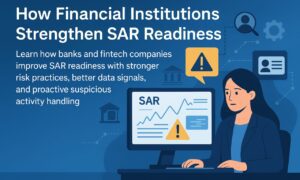The finance industry is undergoing one of the most rapid technological transformations in history. From digital-only banks to highly automated investment platforms and AI-driven risk tools, modern financial institutions rely on software not simply as infrastructure, but as a strategic growth engine. As a result, financial software development has shifted from building isolated systems to engineering end-to-end, secure, scalable digital ecosystems.
Based on 10+ years of building fintech platforms, retail banking systems, investment tools, and high-load financial applications for global enterprises and startups, Genius Software highlights the core financial software development priorities that define competitiveness in 2025.
1. Financial Services Are Now Digital-First — and Software Architecture Must Reflect That
Today’s users expect instant onboarding, zero downtime, transparent transactions, and an experience similar to tech giants rather than traditional banks. This requires financial software built on:
- Microservices or modular architecture for fast scaling
- High-load back ends capable of processing thousands of concurrent transactions
- Event-driven systems for real-time financial data
- Cloud-native deployments that ensure resilience and global accessibility
Financial organizations increasingly replace legacy monoliths because outdated systems slow innovation, limit integrations, and increase operational risk.
2. Regulatory Compliance Must Be Built Into Code, Not Added Later
Compliance frameworks such as PSD2, PCI DSS, AML, KYC, GDPR, SOX, and Open Banking standards are no longer documentation tasks — they must be embedded in the software itself.
This means:
- automated KYC and AML checks
- secure identity verification
- encrypted communication channels
- role-based access control
- immutable audit logs
- secure API integrations with banks and third-party providers
Financial platforms that integrate compliance at the engineering level dramatically reduce risk, implementation cost, and time-to-market.
3. AI Is Reshaping Risk Management, Forecasting, and Customer Experience
Artificial intelligence has become the new competitive advantage for financial institutions. AI-powered financial software now enables:
- fraud detection through anomaly recognition
- predictive analytics for lending and investment
- automated underwriting
- dynamic credit scoring
- natural-language interfaces for customer support
- personalized financial recommendations
- intelligent portfolio management
At Genius Software, we see the rise of Agentic AI systems in finance — autonomous agents capable of monitoring transactions, detecting risks, executing workflows, and enhancing operational decision-making with minimal human oversight.
4. Secure Integrations Are Becoming a Critical Business Requirement
Modern financial platforms must integrate with:
- banks and payment providers
- open banking APIs
- credit bureaus
- KYC/AML service providers
- accounting systems
- investment and trading platforms
- CRM and ERP systems
A robust financial software development strategy ensures APIs are not only functional but secure, standardized, and scalable. Poor integration quality is now one of the highest contributors to financial system downtime.
5. Legacy System Modernization is Accelerating Globally
Many financial institutions still rely on outdated systems built 10–20 years ago. These systems are difficult to integrate, expensive to maintain, and vulnerable to security risks.
Modernization typically includes:
- cloud migration
- UI/UX redesign
- replacing legacy cores with modular architecture
- containerization and DevOps automation
- rewriting critical components on .NET, Java, or Node.js
- building real-time analytics layers
Genius Software has helped organizations rebuild their financial platforms from legacy to high-load, cloud-native architectures — increasing scalability, performance, and compliance readiness.
6. Security Is No Longer Optional — It Is the Foundation
Cyberthreats against financial institutions grow every year. Modern financial applications require:
- end-to-end encryption
- secure data storage
- multi-factor authentication
- zero-trust architecture
- penetration testing
- automated security monitoring
- protection of APIs and microservices
- hardened cloud infrastructure
The financial sector cannot afford even minimal breaches — security by design is the only sustainable approach.
7. Financial Institutions Need Teams With Both Technical and Domain Expertise
Financial software development is not generic software development. It requires engineers who understand:
- financial workflows
- transactional integrity
- risk models
- compliance constraints
- integrations with banking systems
- user behaviour in digital finance
Genius Software has spent over a decade working in fintech, banking, investments, insurance, and payment technologies, delivering solutions for startups and enterprise-level clients across Europe, the US, and global markets.
8. Real-World Case: Building a Retail Banking Platform
Genius Software recently helped a financial institution rebuild its retail banking system, delivering:
- secure account management
- loan workflows
- multi-step identity verification
- analytics dashboards
- scalable cloud infrastructure
- high-load transaction processing
The result: a modern, user-friendly, compliant digital banking environment capable of supporting rapid customer growth.
What’s Next for Financial Software Development?
The next wave of financial innovation will be driven by:
- autonomous AI agents
- blockchain-backed identity and transaction verification
- smart, composable financial ecosystems
- fully automated lending and investment workflows
- hyper-personalized digital banking
- advanced behavioral analytics
Financial institutions that adopt modern engineering practices now will lead the next decade of growth.
About Genius Software
Genius Software is a full-cycle software development company headquartered in Estonia, with delivery teams in Poland and Ukraine. For over 10 years, our certified engineers have helped global startups and Fortune 500 companies build secure, scalable, high-performance financial software platforms.
Our expertise covers:
- custom financial software development
- retail banking platforms
- open banking integrations
- risk and fraud detection systems
- investment and trading platforms
- AI-powered financial automation
- legacy modernization
- high-load back-end development
- cloud transformation and DevOps
We combine deep engineering expertise with strong financial domain knowledge — and we deliver systems trusted by enterprise organizations worldwide.
Final Thoughts
Financial software development is entering a new era where speed, security, intelligence, and compliance shape the future of the industry. Organizations that modernize their digital ecosystems, embrace AI, and choose experienced engineering partners will gain a lasting competitive advantage.
If you are exploring new financial software solutions, modernizing legacy systems, or building the next fintech product, Genius Software is ready to help accelerate your vision.



































